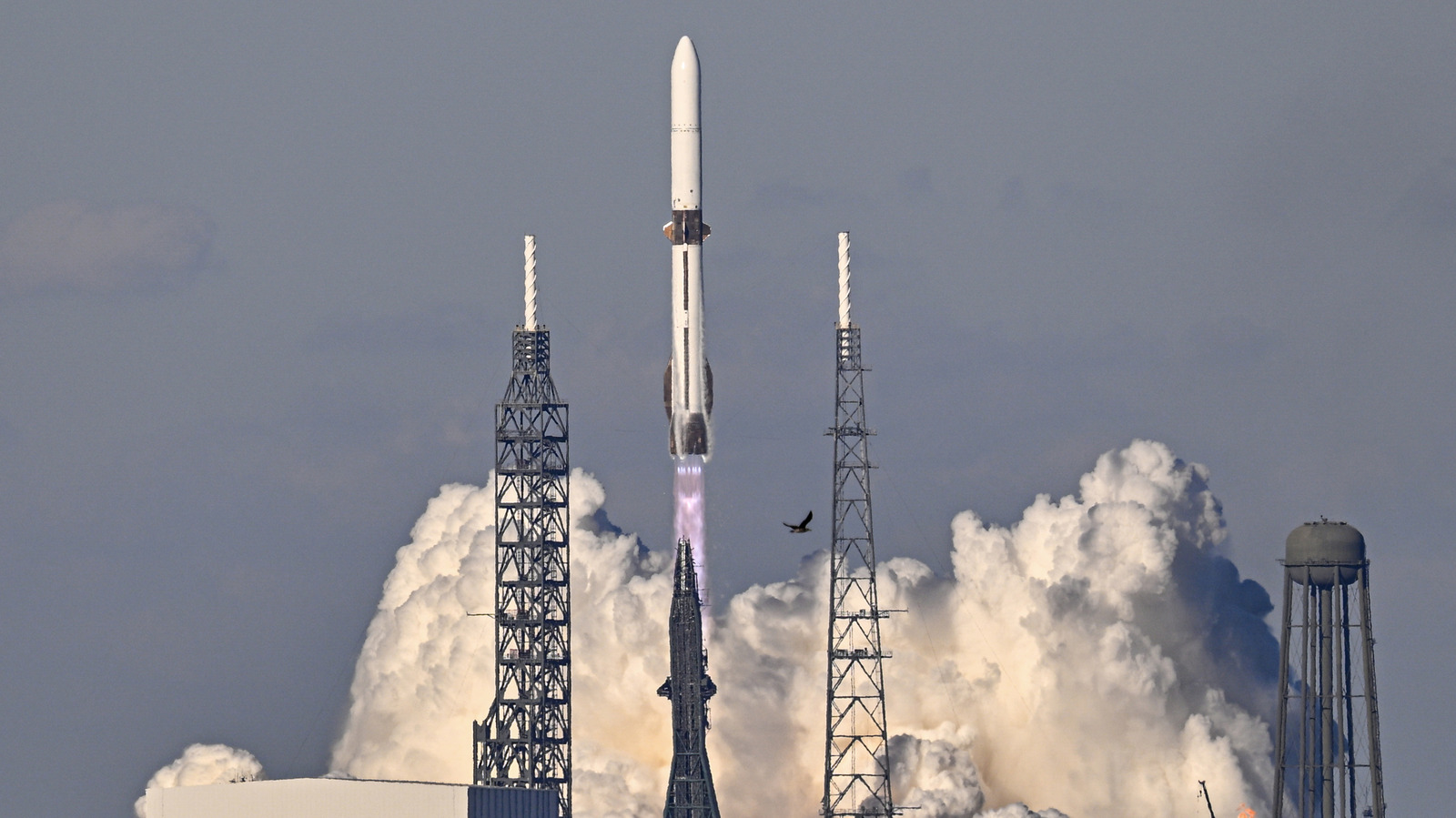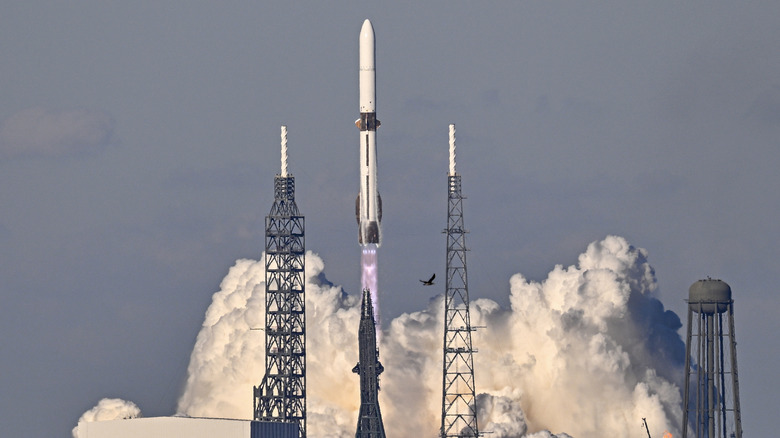Blue Origin, the commercial space company founded by Jeff Bezos, has successfully completed its first operational mission with its New Glenn reusable rocket. That’s one giant leap for the company, as it has now demonstrated that it is ready to take industry juggernaut SpaceX head-on. The mission involved delivering a real (not test) payload into low-Earth orbit and then landing its first-stage rocket on a drone boat. To date, Blue Origin had only managed a test payload delivery, and no one at all had copied SpaceX’s ability to land on a ship. In other words, Blue Origin isn’t just a pipe dream anymore — it’s a real boy.
In fairness, the Washington-based company made it as easy as possible. The payload was only two small satellites from Rocket Lab, eventually destined for Mars orbit. That is far less total weight than the New Glenn is nominally capable of. As the New York Times put it, “It’s like driving a tractor-trailer truck to deliver a couple of pizzas.” But hey, pizzas delivered! And pizzas are important, especially when they might help NASA determine why Mars lost its atmosphere.
The ship, named Jacklyn (after Bezos’ mom), returned to port on Monday, fully completing the recovery of the rocket’s first stage. Blue Origin gave that rocket part a name, by the way: Never Tell Me the Odds. Han Solo would be proud.
This orbit ain’t big enough for the both of us
But the big takeaway here is that SpaceX finally has some real competition for its core business. While the hugely ambitious (and explodey) Starship grabs most of the headlines these days, it’s the Falcon 9 that has been the workhorse that transformed an industry. It’s completely changed the economics of space launches, since its first stage can land itself on a boat for recovery and reuse. So far, that’s led to 516 landings and 484 reflights.
Now, the New Glenn has proved it can pull the same trick for orbital payload deliveries. While Blue Origin has a ways to go before it can match SpaceX’s manufacturing and operational pace, as Ars Technica notes, that should be ramping up quickly. Once it does, SpaceX’s current stranglehold on cheap launches will slacken. That means probably even cheaper prices for launch, but also less influence that it and CEO Elon Musk can exert on the government and military.
The (private sector) space race
It’s fitting that the New Glenn’s next scheduled payload is Blue Origin’s Blue Moon Mark 1 lunar lander. SpaceX’s Starship was set to be NASA’s first crewed lunar lander since the 1970s — until this month, when the rocket’s woes forced NASA to reopen the contract. The most likely winner of that contract would be Blue Origin. Bezos’ company almost seems like it’s taunting Musk’s.
To SpaceX’s credit, it has led the shift in humanity’s space activities from the public to the private sector, easily ten years ahead of the curve. It reinvigorated both public interest and actual activity in space. But that curve may finally be here. Going forward, it will need to demonstrate that it has either a superior or a cheaper product; it can’t rely on being the only reusable rocket in town. Ah well, at least Blue Origin isn’t also trying to spin up a competitor to its Starlink satellite constellation — hey, wait.



